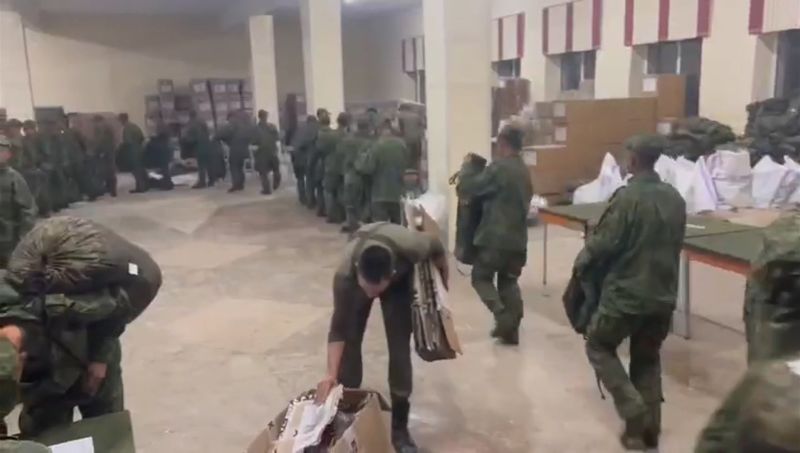
Shocking Audio Reveals Russian Soldiers Disparaging North Korean Recruits: What’s Really Going On?
In a recent turn of events, a startling audio recording has surfaced, shedding light on the interaction between Russian soldiers and North Korean recruits. The intercepted audio clip provides a rare glimpse into the dynamics at play within the world of military training.
The recording captures the voices of the Russian soldiers expressing frustration and discontent towards the North Korean recruits. One soldier can be heard referring to the recruits as granny’s grandsons in a derogatory manner, indicating a perceived lack of competence or skills. This derogatory language raises questions about the relationships and power dynamics between the two groups.
The audio also reveals instances of the Russian soldiers instructing the North Korean recruits, highlighting a potential mentorship role that the former may have assumed. This dynamic suggests a complex interplay of authority, guidance, and perhaps even cultural differences between the soldiers and the recruits.
Furthermore, the intercepted audio underscores the importance of effective communication and teamwork within military operations. The tensions and frustrations evident in the recording serve as a reminder of the challenges that can arise when individuals from different backgrounds are brought together in high-stress environments.
One can also consider the ethical implications of the leaked conversation. The use of derogatory language towards the North Korean recruits raises concerns about respect, professionalism, and human rights within military settings. It prompts a reflection on the values and standards that should govern interactions between military personnel, especially in the context of international collaborations.
Overall, the intercepted audio recording offers a valuable insight into the complexities of military training, intercultural relations, and teamwork. It serves as a reminder of the importance of mutual respect, effective communication, and understanding in fostering positive and productive interactions within military organizations. As this story continues to unfold, it presents an opportunity for reflection and dialogue on the dynamics at play within the military sphere and the broader implications for international relations.
